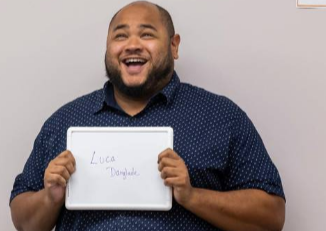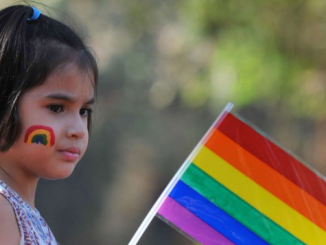
Two transgender boys are likely to win their claim that their Indiana high school’s policy allowing them to use only the girls bathroom or the unisex bathroom in the office violates a federal antidiscrimination law because it denies them a benefit “on the basis of sex,” a federal trial court in Indiana said.
B.E. and S.E. are 15-year-old students at Terre Haute North Vigo High School. They have been transitioning to male since they were 11.
Both boys have gender dysphoria because of the incongruity between their expressed and assigned genders. It can result in extreme anxiety and self harm.
To avoid questions and making other students uncomfortable, B.E. and S.E. use the unisex bathroom in the office. But it has an inconvenient location and has occasionally been locked, which resulted in them having accidents that required changing clothes or going home.
The boys sued the school in the US District Court for the Southern District of Indiana under Title IX of the 1972 Education Amendments, which prohibits discrimination in education “on the basis of sex.” Judge James R. Sweeney II granted them a preliminary injunction Friday, allowing them to use the boy’s restrooms and locker room, saying that they’re likely to win on the merits of their claim.
In Bostock v. Clayton County, the US Supreme Court ruled that Title VII of the 1964 Civil Rights Act, which prohibits discrimination because of an individual’s sex, applies to discrimination because an individual is homosexual or transgender, the court here said.
Although it was abrogated on other grounds, the Seventh Circuit also held in Whitaker v. Kenosha Unified School District No. 1 Board of Education, that a policy that requires a transgender individual to use a bathroom different from their gender identity punishes them for their gender non-conformance in violation of Title IX, the court said.
B.E. and S.E. are entitled to a preliminary injunction under Bostock and Whitaker because they also showed that they don’t have any other legal remedy and presented sufficient evidence that they’ll suffer irreparable harm if the policy is continued, the court said.
Indiana Legal Services Inc. and the ACLU of Indiana represented B.E. and S.E. Bose McKinney & Evans LLP and the Indiana Attorney General’s Office represented the school.
The case is B.E. v. Vigo Cty. Sch. Corp., 2022 BL 219163, S.D. Ind., No. 2:21-cv-00415-JRS-MG, 6/24/22.
* Article from: bloomberglaw.com
(*) www.WhitePrideHomeSchool.com


